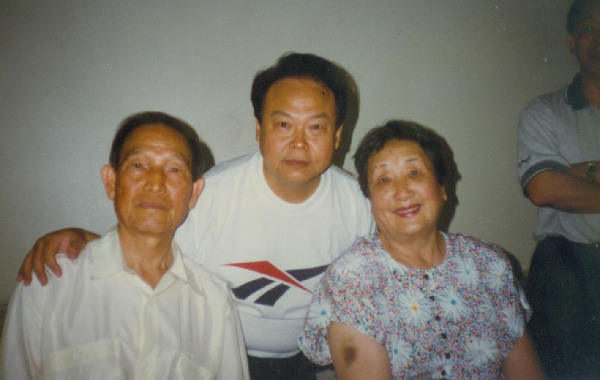 |
|
Liu Shiming and his teacher Wang Fuzeng and Wang’s wife in the United States in 1997[Photo provided to chinadaily.com.cn] |
A hard apprenticeship
Luck brought him to Wang Fuzeng, a music teacher who specialized in laryngeal voicing and bel canto. "His first words at our first meeting were, ‘the young man’s short neck is fit for a tenor’," Liu recalled. "I followed him intensively for two years to cultivate my voice and lower my larynx, as required by Italian-style opera singing." His choice was rare in New China where most artists learned from Russian teachers.
Liu chose to live to the north of Beijing and exercised his vocal cords against the strong winds that battered the vast plain. "Several times blood came out of my throat and even my farmer neighbors pitied me. But I understood that the blood came because of overexertion, not the style of singing, so I had a short break and then started again." The pain was repaid with rapid progress that surprised both Wang, who now lives in the United States, and Guo, who is in Beijing.
"What Wang taught me was decisive to my career," Liu said.
For most of the "cultural revolution" (1966-76) period when opera came to a standstill, Liu spent spare time pondering Wang’s teachings and techniques in traditional music.
He turned to varied folk songs, and experimented with different parts of the upper register to achieve the perfect match of timber, tone and tune. "I spent 10 years pondering the qualities of bel canto with traditional opera and folk singing, as well as techniques in quyi and other folk song performances, constantly adjusting the frequencies of tone rising from my chest and the nasal and head cavities, and putting them together or separating them to fit different and flexible music."
|
|
|
|
|
|
